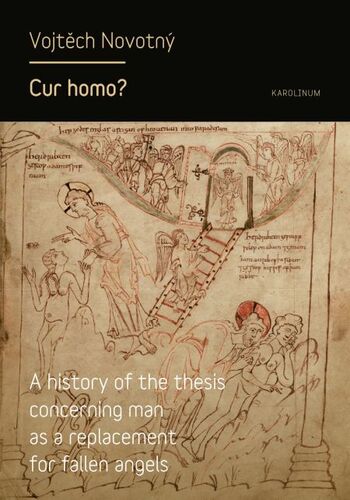Cur homo? - Vojtěch Novotný
Knihu kúpite v
1 e-shope
od
7,00 €
Panta Rhei
7,00 €
Skladom
(dodanie do 3 dní)
Krátky popis
This monograph has set itself the goal to examine, outline,
elucidate, and supplement the existing body of knowledge concerning
a theme from patristic and medieval theology recalled in 1953 by
Marie-Dominique Chenu, and that is the assertion that man was
created as a replacement for fallen angels (Yves Congar: créature
de remplacement; Louis Bouyer: ange de remplacement). The study
first shows that the idea of man having being created to take the
place of fallen angels was introduced by St. Augustine and
developed by other church fathers. It then identifies the typical
contexts in which the subject was raised by authors of the early
Middle Ages, but goes on to focus on the discussion that developed
during the twelfth century (Anselm of Canterbury, the school of
Laon, Rupert of Deutz, Honorius of Autun), which represents the
high point of the theme under investigation, culminating in the
assertion that man is an "original" being, created for its own
sake, for whom God created the world – a world which together with,
and through, man is destined for the heavenly Jerusalem. The
question as to whether man would have been created if the angels
had not sinned (cur homo) bears a clear similarity to a further
controversy, the origins of which also go back to the twelfth
century, and that is whether the Son of God would have become
incarnate if man had not sinned (cur Deus homo). Next, the book
sheds light on how the subject begins to gradually fade away
through the twelfth and thirteenth centuries, both within monastic
tradition, which nonetheless held onto Augustine's motif, and
within scholastic theology, which asserted that man was created for
his own sake. The conclusion summarizes the findings and points to
the surprisingly contemporary relevance of the foregoing
reflections, particularly in relation to the critique that the
Swiss philosopher and theologian Romano Amerio († 1997) offers
concerning a statement in the pastoral constitution of the Second
Vatican Council (Gaudium et spes 24), according to which man is
"the only creature on earth that God willed for itself".

